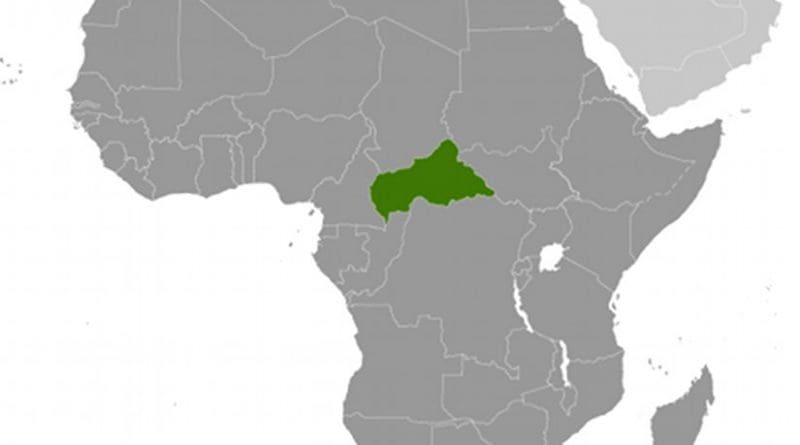Priest Pioneers Peace Process Amid CAR’s Chaos
Despite the Central Africa Republic (CAR)’s increasing level of chaos, a glimmer of hope has been developing in its northern city Bozoum – which is peaceful and prosperous – thanks to mediation efforts.
This city of about 26,000 inhabitants enjoys a relative calm which ensures the functioning of vital services such as the hospital, schools, market, thanks to mediation efforts of people of good will, under the leadership of an Italian priest, Father Aurelio Gazzera, the bishop of St. Michael Parish of Bozoum.
Since Seleka rebels took over power in March 2013, numerous armed men claiming to be from the Seleka rebels or opposing anti-Balaka militia have been looting and committing other forms of abuse against the population, in Bangui and elsewhere across the country.
”It became clear that the tension between the Seleka rebels and anti-Balaka militias could be detrimental to everyone”, said Gazzera. “Thus it’s become necessary to take action to stop the violence against civilians.”
Gazzera has a wealth of knowledge of CAR, a country where he has been living for about twenty two years. His mediation approach is focused on dialogue with different groups: armed men and community leaders. It aims to present and discuss grievances while trying to confront perpetrators with the results of their actions.
But his first mediation efforts were unsuccessful. In December 2013, fighting broke out in Bozoum, located 400 km north of the capital Bangui, and nearly 6,000 people, mostly Christians, fled their homes and found refuge in the Catholic Parish compound that Gazzera oversees, while dozens of others fled into the bush.
A brief intervention of international troops – just two days for African forces and four days for French forces – was not enough to restore calm. Soon after the troops left, Seleka rebels burned down more than 1,500 houses in Bozoum.
Gazzera engaged in strenuous efforts to persuade them to leave, which succeeded, and the Seleka fighters agreed to withdraw from the city. This enabled avoidance of direct confrontation with the opposing anti-Balaka militiamen, who were gathered by thousands in the surrounding villages.
Despite the mediation efforts, Bozoum has been emptied of its Muslim population, who evacuated to neighboring Chad. It was during this especially tense time that international journalists reached the city, and reported what they found: putting Gazzera into the glare of global news coverage.
”Thus we managed to prevent the worst and maintain a certain level of stability,” said Gazzera. “Since the departure of the Seleka in January 2014, only two deaths were recorded against some 130 [deaths] weeks before.”
As signs of this stability, the hospital as well as schools – from nursery to grammar schools – re-opened thanks to a ‘simple’ strategy which consists of buying school materials for students and providing a little ‘incentive’, $30 to $40 US a month, for teachers.
However, these incentives are not a replacement for their wages, which the government is supposed to provide. In total some 15,000 students are registered in 70 schools. This represents an attendance rate of 85% in the city.
Another sign of normality in Bozum is the commencement of farming activities; which are necessary to ensure food needs. Markets and shops have also resumed their usual exchanges – although some imported foods are missing, or are unaffordable. This is the direct result of the departure of the Muslim population, as most of them worked as traders or lorry drivers and predominantly supplied the city’s imported goods from neighboring countries.
Mediation efforts – a risky approach
Discussions with armed groups have often been cut short, said Gazzera, ”They [Seleka and anti-Balaka] are very violent and have no sense of respect and human dignity.”
Several times, the Italian priest was assaulted by armed men.
For example, last September 16, he was threatened with a gun by a Seleka officer who slapped him as he was trying to negotiate the release of some boys who had been captured and brutally tortured.
On other occasions, Gazzera was pelted with stones and shot at. He was unharmed, but the bullet holes are still visible on his car.
Despite the danger, Gazzera has not let the assaults intimidate him.
He says he has a ‘firm attitude’, that he is the ‘’only voice that has some weight in the area” especially since civil and military authorities, who fled the rebel attacks in Bozoum, have not yet made their return.
Part of Gazzera’s mediation efforts include the ‘‘Committee of the Wise’’ which acts as a court for the settlement of disputes, while a ‘‘Mediation Committee’’ which consists of Christian and Muslim clerics, and other members of civil society, meets every day to assess the situation in Bozoum.
Gazzera said that despite persistent difficulties, the crisis has led to new, hopeful dynamics within Bozoum’s population.
”God has allowed us to engage in more acceptance of others. The crisis also opens the way to a life of faith, and has enabled some people to encounter the Gospel,” he said. “Also, many have already started to regret the departure of Muslims, who were the economic engine of the city.”
Gazzera is thankful for the efforts of the city’s religious and community leaders, and hopes that Bozoum’s experience will spread to other cities in CAR.
However, cautioned Gazzera, this mediation effort will – at some point – require the support of experts to set up analysis and strategies on how to better deal with the ongoing crisis.

